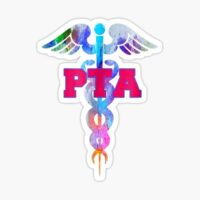
About Physical Therapy
Physical Therapist Assistants responsible for patient care under the direction and supervision of a licensed Physical Therapist, as mandated by State Practice Act. PTA possesses training and education which allows him/her to assist the Physical Therapist in carrying out prescribed treatment program.
Physical Therapist Assistants work closely with patients to help them recover from injuries. Here is your opportunity to channel the full extent of your knowledge, skills, ambition, and experience on a daily basis. Inspire our patients to progress each day.
Your role as a physical therapy assistant (PTA) lets you be the connection between dedication to detail and patient outcomes that exceed expectations. Use your passion for rehabilitation to ensure that patients receive care that sets the standard as you treat patients with compassion and empathy. Enhance the impact of your abilities with national post-acute care leader.
Physical Therapist Assistants work closely with patients to help them recover from injuries. Here is your opportunity to channel the full extent of your knowledge, skills, ambition, and experience on a daily basis. Inspire our patients to progress each day.
Your role as a physical therapy assistant (PTA) lets you be the connection between dedication to detail and patient outcomes that exceed expectations. Use your passion for rehabilitation to ensure that patients receive care that sets the standard as you treat patients with compassion and empathy. Enhance the impact of your abilities with national post-acute care leader.
A few of the most common duties and responsibilities required of Physical Therapist Assistants include:
Program Mission and Outcomes
The Physical Therapist Assistant Program at the St. George Univerity prepares students for licensure and employment as Physical Therapist Assistants, in various health care settings, with diverse patient populations. Commitment to excellence in student preparation yields graduates that possess ethical practice standards, demonstrate outstanding technical competence, and incorporate critical thinking into all aspects of patient care under the direction and supervision of a licensed physical therapist. The program promotes professionalism and a commitment to the profession of Physical Therapy.
Through the Physical Therapist Assistant Program, our goal is to educate students on the most current concepts and practices in the field of physical therapy.
Through the Physical Therapist Assistant Program, our goal is to educate students on the most current concepts and practices in the field of physical therapy.
Program Purpose
The purpose of the PTA program is to develop knowledgeable, motivated, competent professionals who have the skills necessary to meet the career demands of an entry-level physical therapist assistant and, thereby, serve the diverse needs of their communities.
A comprehensive curriculum is maintained, which includes verifying the competence and professionalism of students. To promote an optimal educational experience for all students, diversity in teaching methodology is also practiced. As role models, those involved with the program strive to exhibit the professional attributes expected in the physical therapy profession.
Students enrolled in this career will experience challenging coursework while learning physical therapist assistant theory, practice, and critical thinking skills. As a student, your training will involve a combination of classroom instruction and hands-on exercises. You will also have the opportunity to gain real-world experience by participating in 600 hours of clinical practicum.
A comprehensive curriculum is maintained, which includes verifying the competence and professionalism of students. To promote an optimal educational experience for all students, diversity in teaching methodology is also practiced. As role models, those involved with the program strive to exhibit the professional attributes expected in the physical therapy profession.
Students enrolled in this career will experience challenging coursework while learning physical therapist assistant theory, practice, and critical thinking skills. As a student, your training will involve a combination of classroom instruction and hands-on exercises. You will also have the opportunity to gain real-world experience by participating in 600 hours of clinical practicum.
Admissions
Admission is open to anyone who is a high school graduate, has earned a GED or is at least 18 years old and can benefit from college-level instruction.
The University prohibits discrimination in its admission, employment, and educational programs or activities on the basis of race, color, sex, religion, creed, national origin, age, ancestry, marital status, sexual orientation, arrest record, military status or unfavorable military discharge, citizenship status, and physical or mental disability.
Prospective students complete application and submit to the Office of Admissions and in advance of their expected starting date.
Students should submit official transcripts from high schools and colleges they have attended. Entrance exams are required for admission; include placement tests in reading, writing and mathematics. Students are encouraged to submit national college entrance tests such as the SAT or HEISI .
The University prohibits discrimination in its admission, employment, and educational programs or activities on the basis of race, color, sex, religion, creed, national origin, age, ancestry, marital status, sexual orientation, arrest record, military status or unfavorable military discharge, citizenship status, and physical or mental disability.
Prospective students complete application and submit to the Office of Admissions and in advance of their expected starting date.
Students should submit official transcripts from high schools and colleges they have attended. Entrance exams are required for admission; include placement tests in reading, writing and mathematics. Students are encouraged to submit national college entrance tests such as the SAT or HEISI .
Educational Requirements

Curriculum
The curriculum is designed to provide the student with a comprehensive body of knowledge and the necessary skills expected of a competent graduate. The curriculum provides skills for a lifetime of continued learning, rewarding careers and to become leaders in the nuclear medicine community.
The curriculum include academic (didactic) instructions that provides learning experiences to help better understand and perform clinical responsibilities, laboratory studies and clinical practicum:
